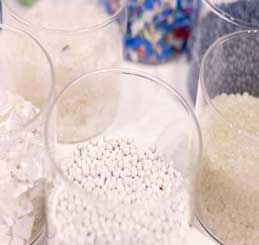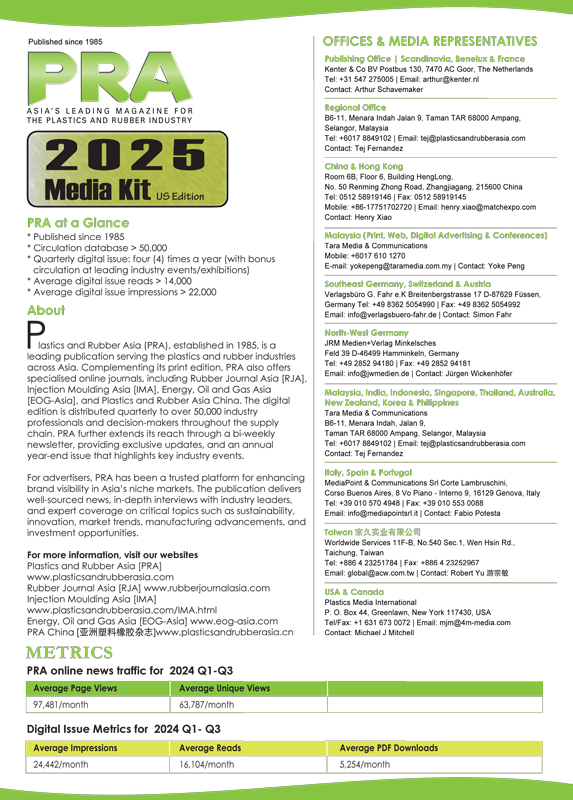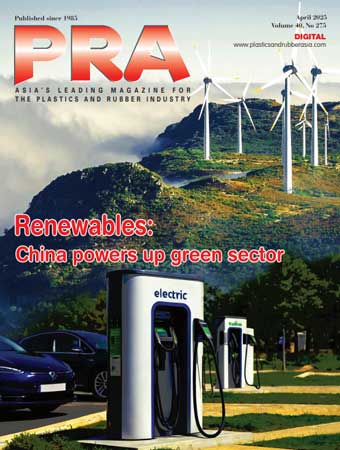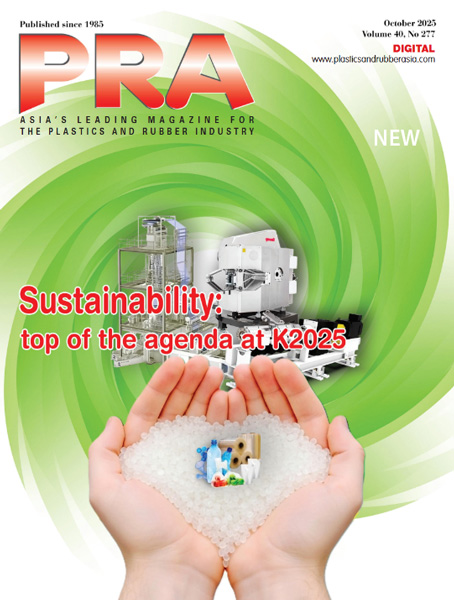Green tie-ups: BASF, Porsche, Best in pilot project on auto parts recycling; Borealis to convert Integra plant for rPP grades
Porsche AG and BASF SE, in collaboration with technology partner Best - Bioenergy and Sustainable Technologies GmbH, say they have successfully completed a pilot project on recycling mixed waste from end-of-life vehicles. The pilot project demonstrates the recyclability of high-performance plastics from automotive shredder residues (ASR) together with renewable raw materials. This mixture of plastic, film, paint, and foam residues is said to be complex that it can currently only be thermally recycled. The pilot project shows that these automotive wastes can be recycled through gasification, a special type of chemical recycling, and returned to the automotive cycle.

This pilot project validates the viability of new sources of plastics and applications for chemical recycling in components. The ultimate goal is to source less primary material in the future and increase the proportion of recycled materials in vehicles. As part of the project, the chemically recycled material was used in the manufacturing process for steering wheels.
Porsche aims to use recycled materials in its vehicles and close resource cycles. In this context, the company has set itself the goal of increasing the proportion of verifiable secondary materials in its vehicle production. The pilot project can evaluate the potential of automotive shredder residues as a future recycling source and thus as a secondary raw material. It is thus a complementary alternative to mechanical recycling, which often cannot achieve this high quality, the company adds. In addition, demand-driven scaling is possible in the future in connection with the so-called mass balance approach.
In this project, a combined waste stream consisting purely of automotive waste and biomass was recycled in a gasification process for the first time. The resulting recycled raw material - the so-called synthesis gas and its derivatives - replaced the fossil raw materials in BASF's integrated value chain. Within its production network, BASF then produces the polyurethane formulation needed for the steering wheel using a mass balance approach*.
The recycling innovation uses modern gasification technology from Best to convert plastic waste and other residues into synthesis gas at high temperatures.
"In our plant, we have previously converted biomass such as wood or straw into chemical raw materials. In this pilot project together with BASF and Porsche, we have now used this gasification technology for the first time to convert complex plastic waste streams together with biomass into synthetic crude oil, known as syncrude," explains Dr. Matthias Kuba, Area Manager Syngas Platform Technologies at Best in Vienna.
Gasification is a variant of chemical recycling that can convert particularly mixed waste streams into valuable new raw materials, for example: plastic production. When fed into large, complex, and continuously operated production plants such as the BASF, these new circular raw materials are mixed with conventional fossil raw materials and processed into plastic precursors. The new (secondary) raw materials are attributed using the mass balance approach.

Meanwhile in other news, Integra Plastics AD, Bulgaria, a member of the Borealis group, is converting its production facility to produce PP starting in October 2025. The upgrade includes the installation of Borealis' proprietary Borcycle M mechanical recycling technology, enabling Integra to produce both value-add and premium recycled polypropylene (rPP).
It adds that the upgraded facility will transition from producing recycled low-density polyethylene (rLDPE) to grades of rPP. The upgrade will also increase output, taking capacity beyond the current 20,000 tonnes.
Borcycle M is a mechanical recycling technology that enables post-consumer polyolefin waste to be upcycled into high-quality materials suitable for demanding applications. These materials have a significantly lower carbon footprint than virgin-based alternatives, helping Borealis’ customers reduce their environmental impact.
This will strengthen Borealis’ ability to meet growing demand for rPP in consumer packaging, mobility, and appliances applications, either directly or by further enhancing recycled product properties through integration with Borealis’ compounding business. It is an important step to help Borealis’ customers stay ahead of future national and international regulations, such as the EU’s Packaging and Packaging Waste Regulation (PPWR) and End-of-Life Vehicle (ELV) directive.
"This upgrade will give our customers reliable access to premium recycled materials. In combination with Borealis’ superior products and compounding expertise, we’re in a unique position to serve our customers in their quest to transition to sustainable solutions." says Dirk Langhammer, Borealis Vice President Circular Economy Solutions.
Subscribe to Get the Latest Updates from IMA Please click here
©2025 Injection Moulding Asia. All rights reserved.












